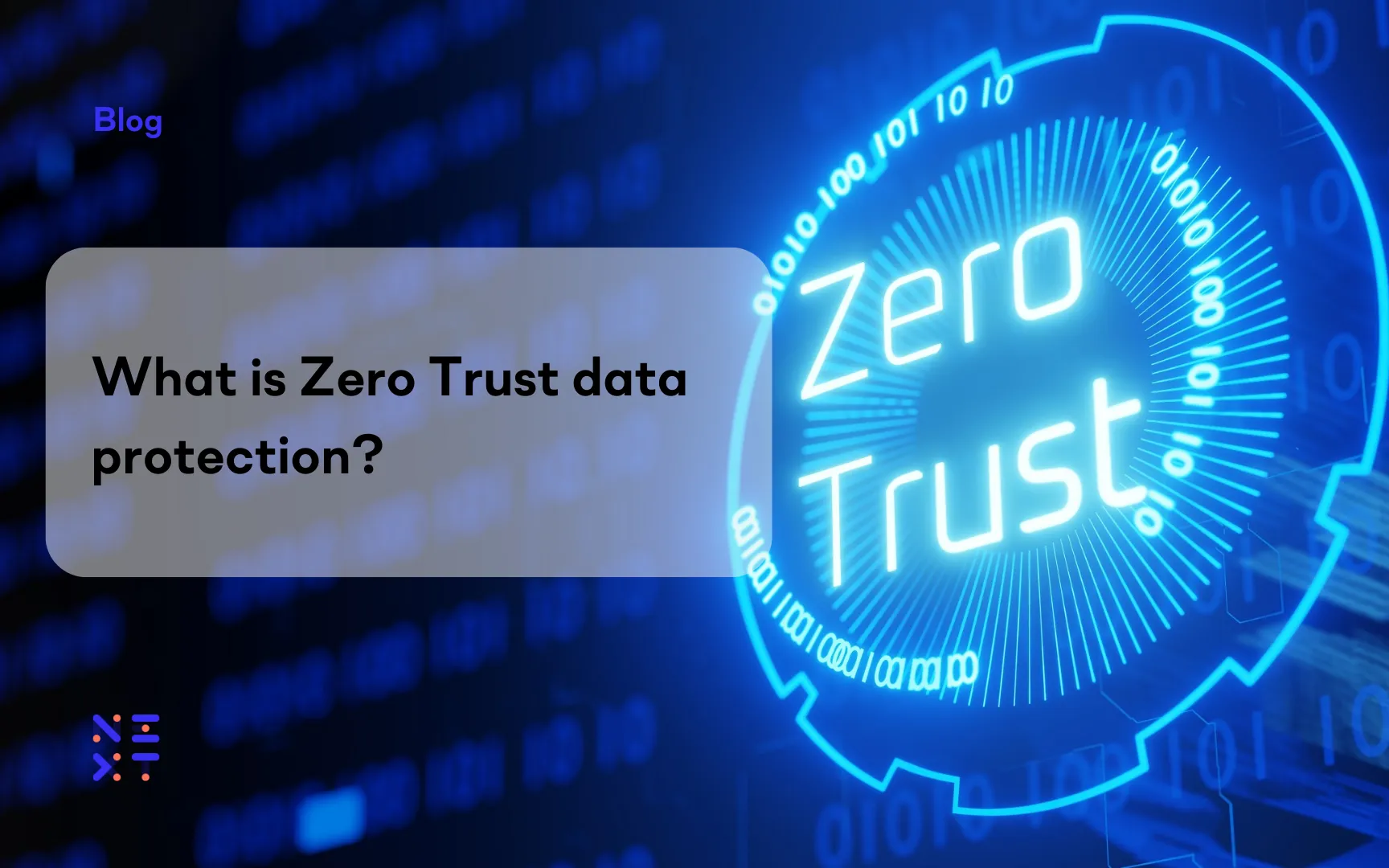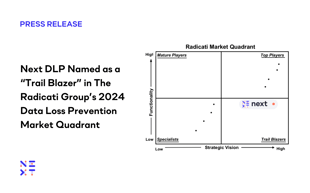Fortinet Acquires Next DLP Strengthens its Top-Tier Unified SASE Solution
Read the release

In a significant move to promote competition and protect worker freedom, the Federal Trade Commission (FTC) issued a final rule banning non-compete clauses nationwide. This rule, effective on August 21, 2024, 120 days after its publication in the Federal Register, aims to foster job mobility, innovation, and new business formation. Non-compete clauses have long been criticized for stifling wages, suppressing new ideas, and hindering economic dynamism. The FTC’s new rule promises to unlock the potential for over 8,500 new startups annually and significantly increase workers' earnings.
For businesses, especially those in highly-regulated industries such as finance, manufacturing, healthcare and technology, understanding the impact of this rule is crucial. Mid-sized businesses with employees in the United States must now navigate this new legal landscape while ensuring their sensitive data remains secure. This paper aims to clarify what the FTC’s new rule means for your organization and how you can protect your data in an environment where non-compete clauses are no longer an option.
Non-compete clauses are contractual agreements that prevent employees from working for competitors or starting a similar business for a specified period after leaving a company. These clauses are designed to protect businesses from losing valuable intellectual property, trade secrets, and customer relationships to competitors.
Historically, non-compete clauses have been used across various industries to safeguard proprietary information and maintain a competitive edge. They are particularly prevalent in industries where innovation and client relationships are key assets, such as technology, healthcare, and finance. While intended to protect businesses, non-compete clauses have often been criticized for being overly restrictive, limiting workers' ability to advance their careers and contribute to economic growth.
On April 23, 2024, the FTC issued a final rule banning non-compete clauses for the vast majority of workers. The rule, resulting from a comprehensive review of over 26,000 public comments, prohibits employers from entering into or enforcing non-compete agreements. Exceptions are made only for senior executives earning more than $151,164 annually in policy-making positions. For these individuals, existing non-competes can remain in force, but no new agreements can be made. The FTC’s decision marks a significant shift in labor policy, aiming to enhance job mobility and foster a more dynamic economy.
The FTC’s rule affects nearly one in five American workers currently bound by non-compete agreements. This includes a broad range of employees, from junior staff to mid-level managers. The only exemption is for senior executives who meet specific income and role criteria. For most businesses, this means that existing non-compete agreements with the majority of their workforce will no longer be enforceable.
For businesses in highly-regulated industries such as finance, healthcare, and technology, the ban on non-compete clauses presents unique challenges. These industries rely heavily on the protection of sensitive information, including intellectual property, customer data, and strategic business plans. The inability to enforce non-compete clauses raises the risk of valuable knowledge and skills being transferred to competitors, potentially undermining competitive advantages and market positioning.
Mid-sized businesses with employees in the United States must adapt to this new regulatory environment. These businesses often operate with limited resources compared to larger corporations, making the protection of proprietary information even more critical. The end of non-compete clauses necessitates a shift towards other protective measures, such as robust data loss prevention (DLP) solutions, enhanced insider risk management, and comprehensive employee training programs. By proactively addressing these challenges, mid-sized businesses can safeguard their sensitive data and maintain a competitive edge in an evolving market landscape.
The absence of non-compete clauses increases the risk of employees taking sensitive information to competitors. Departing employees may transfer valuable information either intentionally or unintentionally, posing a major threat to the organization's intellectual property and competitive edge. Various types of data are particularly vulnerable to such risks, including intellectual property, customer data, trade secrets, strategic plans, and proprietary technology. These data types are crucial for maintaining a company's market position and operational efficiency.
Real-world examples highlight the severity of data loss due to departing employees. Numerous case studies have documented instances where former employees have taken sensitive data to competitors, resulting in significant financial losses and reputational damage for their previous employers. These incidents underscore the need for robust data protection measures to mitigate the risks associated with employee turnover.
DLP solutions are essential for safeguarding sensitive information. These technologies provide comprehensive protection by monitoring, detecting, and preventing unauthorized data transfers. By identifying sensitive information and enforcing policies that block its transfer to unauthorized locations or users, DLP tools help prevent data breaches and ensure compliance with regulatory requirements.
Proactive insider risk management is crucial for identifying and mitigating potential insider threats. This involves using monitoring and analytics tools to detect risky behaviors and anomalies in data access patterns. Best practices include conducting regular audits, implementing role-based access controls, and maintaining real-time monitoring systems to ensure that only authorized personnel have access to sensitive data.
Educating employees about data security is fundamental to any data protection strategy. Ongoing training ensures that employees understand the importance of data security and their role in protecting sensitive information. Regular training sessions and updates on data protection policies help keep these issues top of mind for employees, fostering a culture of security awareness within the organization.
In the absence of non-compete agreements, revising employment contracts to include alternative protective measures is essential. Non-disclosure agreements (NDAs) can legally bind employees to confidentiality, providing a layer of protection for sensitive information. Utilizing NDAs and other legal tools can help ensure that employees understand their obligations regarding data protection even after leaving the company.
Next DLP's Reveal platform is a cloud-native, AI & ML-powered data protection solution designed to address the challenges of the modern regulatory environment. It combines Data Loss Prevention, Insider Risk Management, and Cloud and Mobile Data Security into a single, comprehensive solution.
Reveal provides real-time visibility into data usage and movements, ensuring that sensitive information is protected at all times. The platform offers instant risk identification without the need for predefined policies, allowing businesses to quickly adapt to emerging threats. Leveraging machine learning on endpoints, Reveal establishes activity baselines to identify normal behavior, enabling the endpoint agent to quickly spot deviations from these established norms. By keeping all data on the endpoint, Reveal secures sensitive information and protects user anonymity. When behavior deviates from the norm, it creates an alert for the security analyst to investigate and act upon, reducing alert fatigue by automating notifications for the endpoint user and only bringing true anomalies to light for the security team.
The platform also includes user training capabilities that educate employees on data protection best practices precisely when they pose a risk. When a user performs an action outside of sanctioned activities, the system alerts them, setting guardrails for their actions and guiding them to act within the guidelines of security policies. This approach is valuable as it mitigates the action and makes the user part of the solution when it is most relevant, promoting a culture of security awareness and compliance.
Final Thoughts: In the face of changing legal environments, proactive data protection is more important than ever. By leveraging Next DLP’s Reveal platform, businesses can safeguard their sensitive data, maintain a competitive edge, and ensure compliance with evolving regulations.
Call to Action: We encourage you to evaluate your current data protection strategies and consider integrating our Reveal platform for enhanced security. Contact us today to learn more about how we can help you protect your most valuable assets.

Blog

Blog

Blog

Blog

Resources

Resources

Resources

Resources
